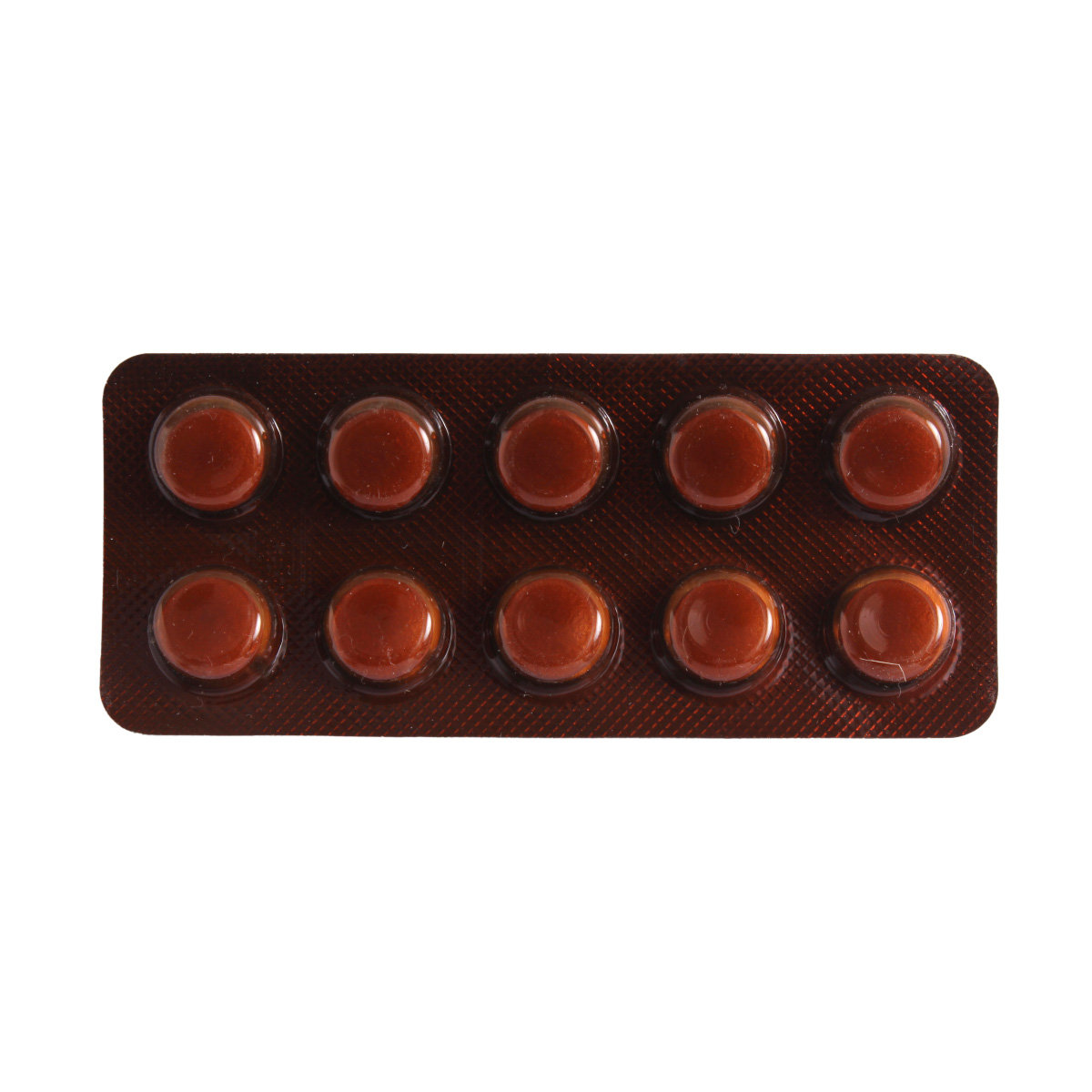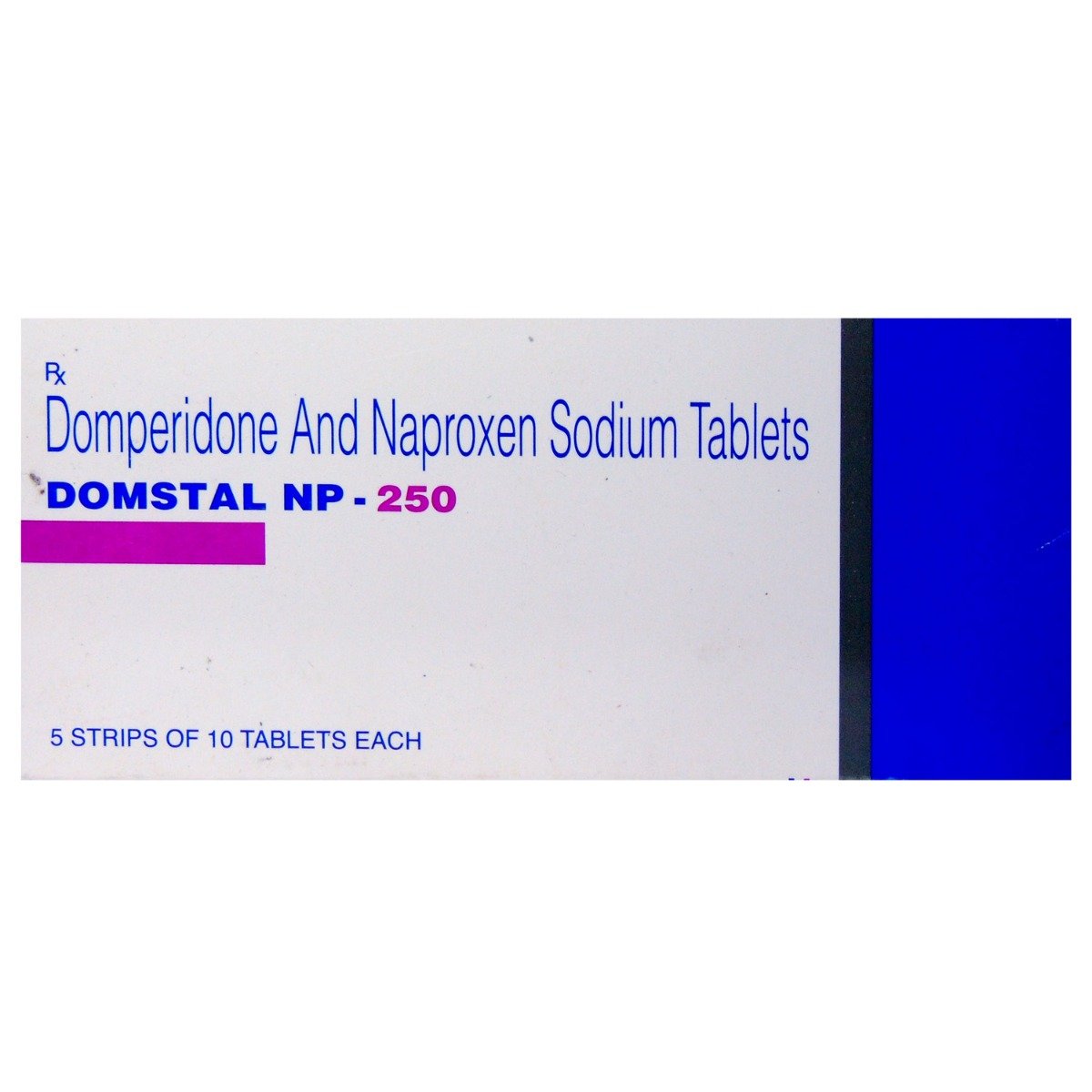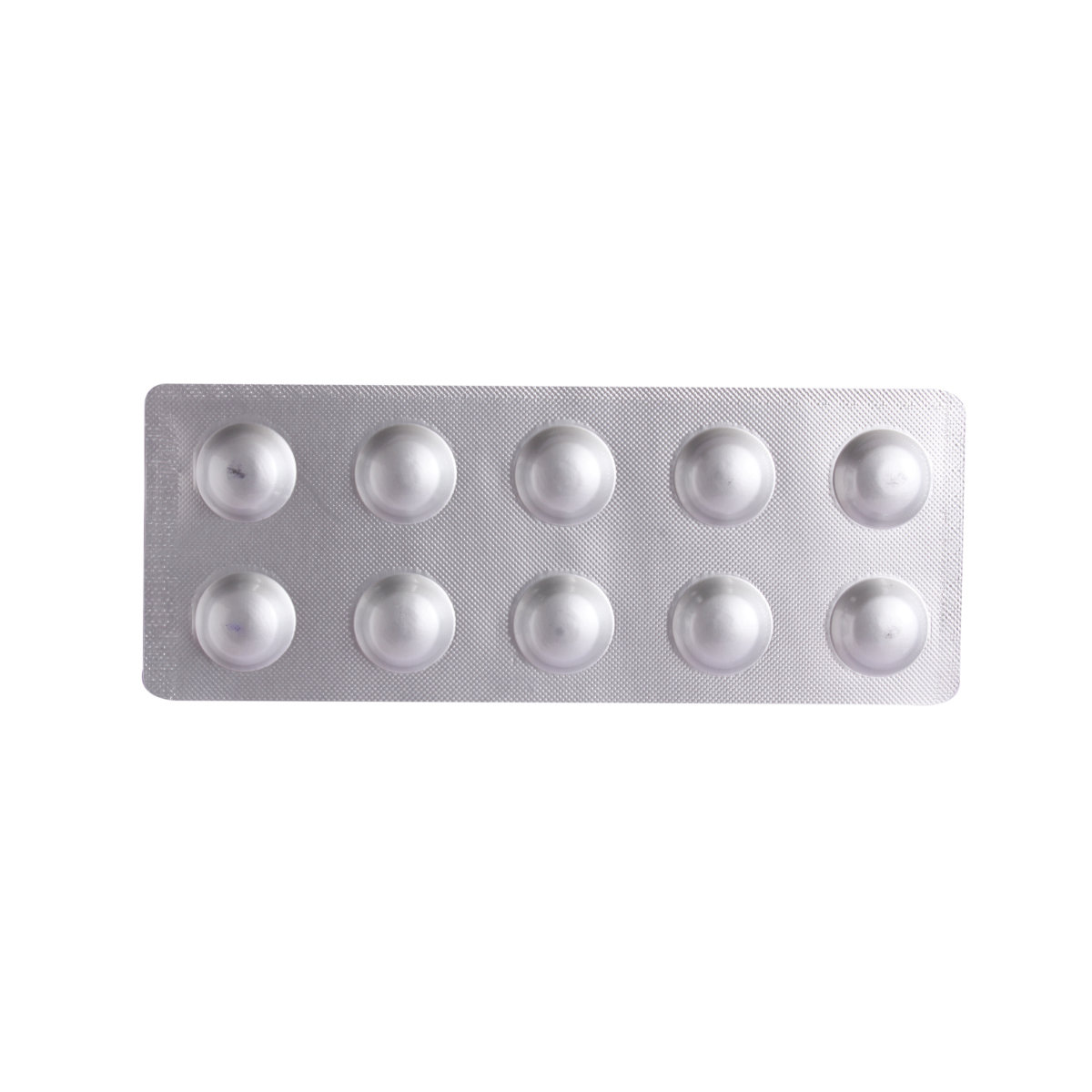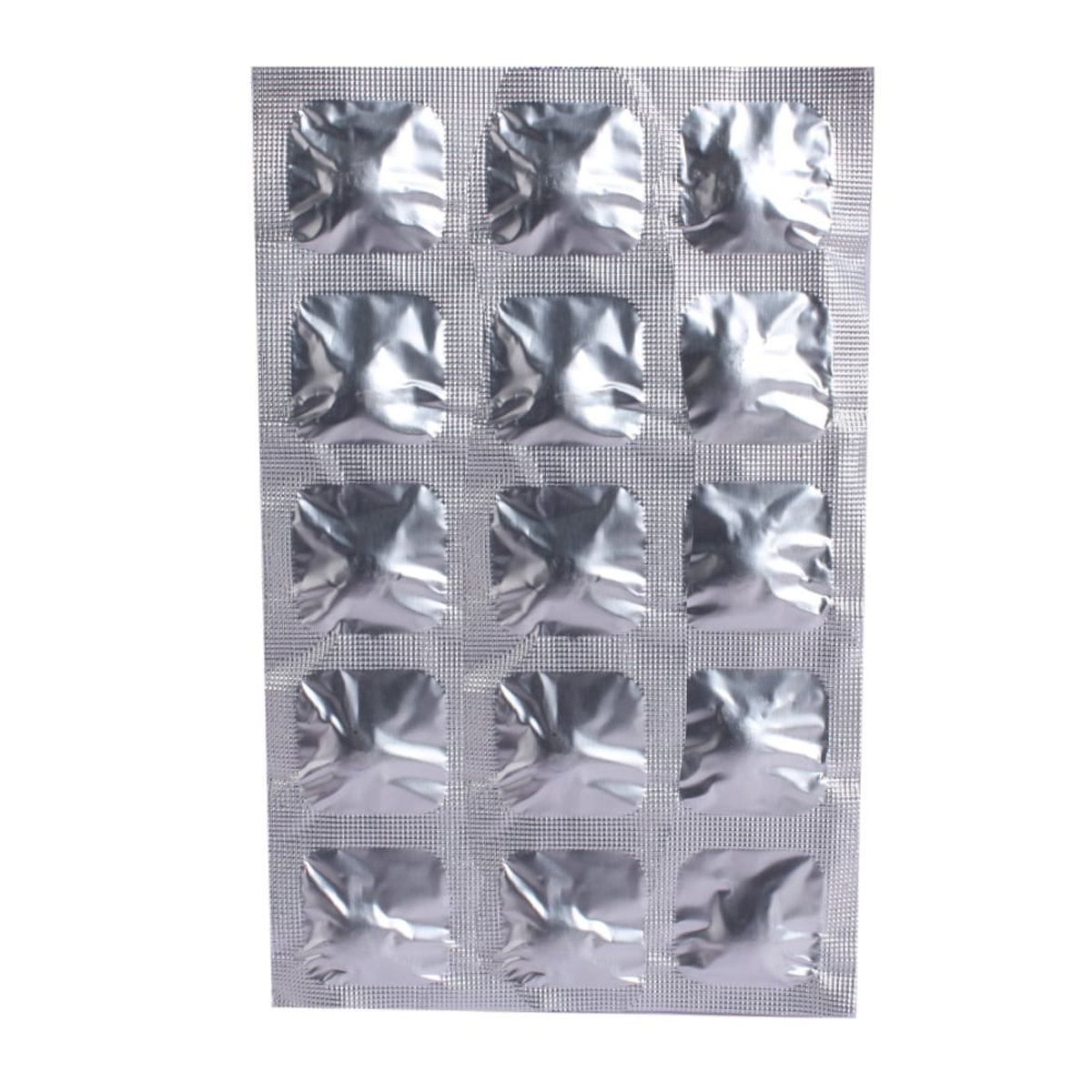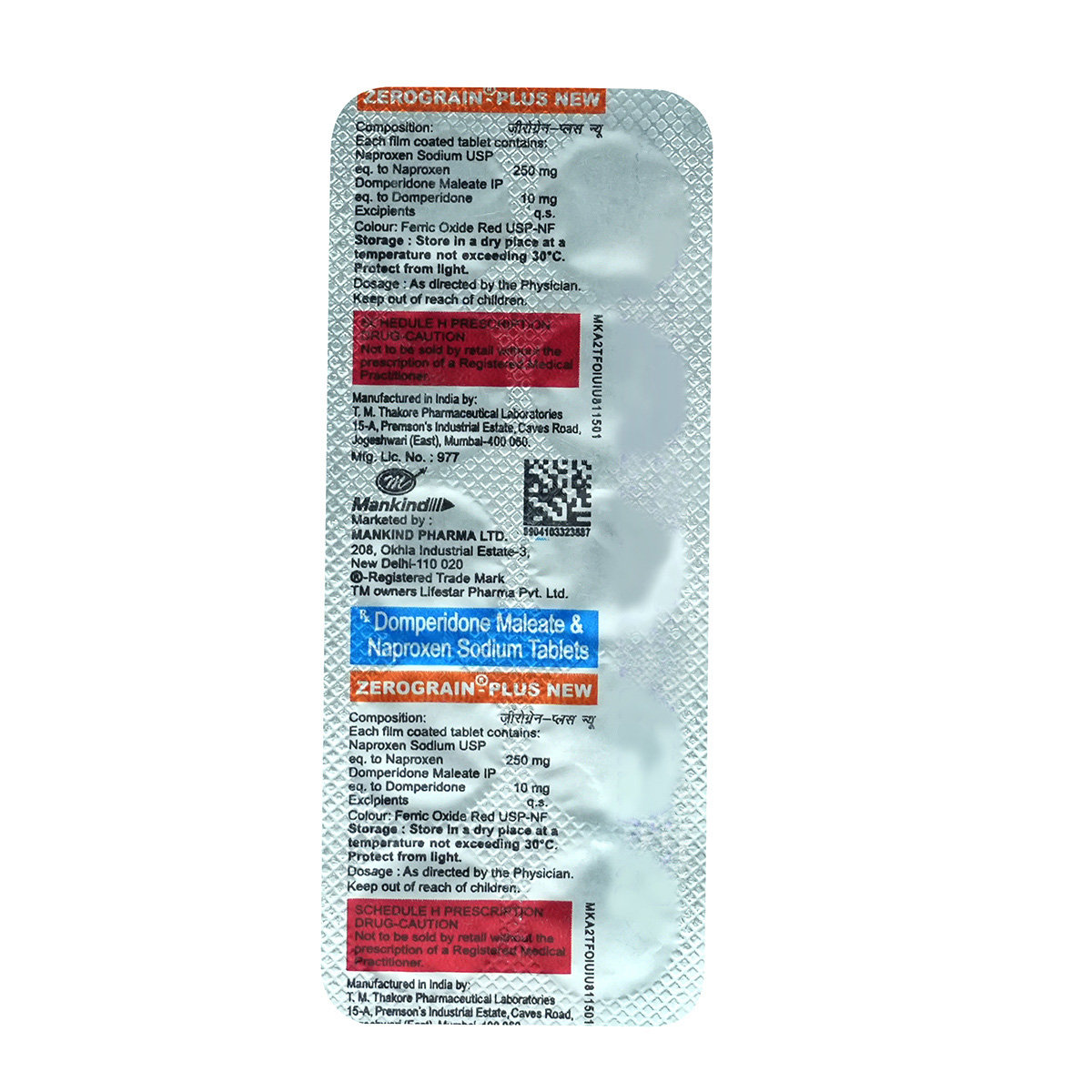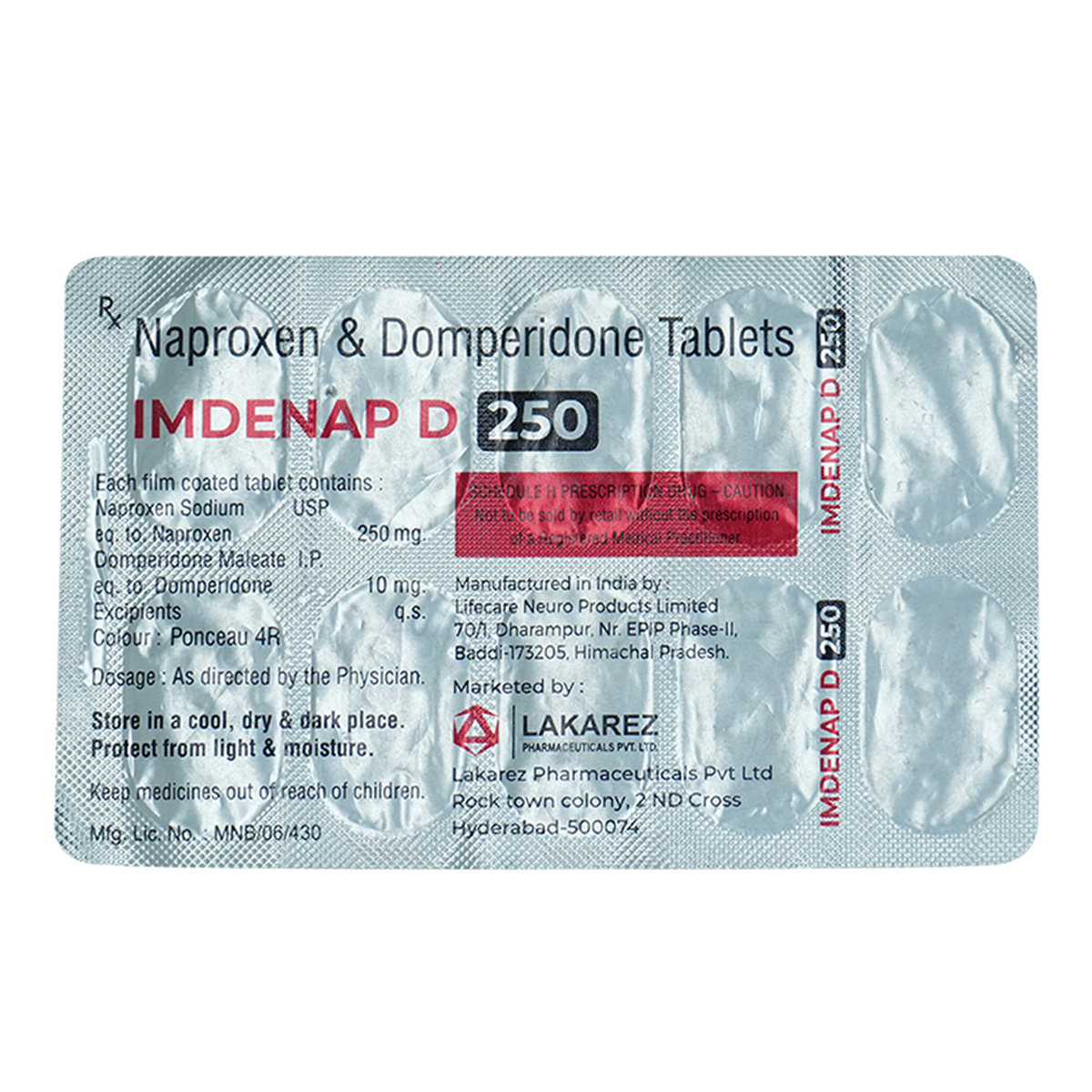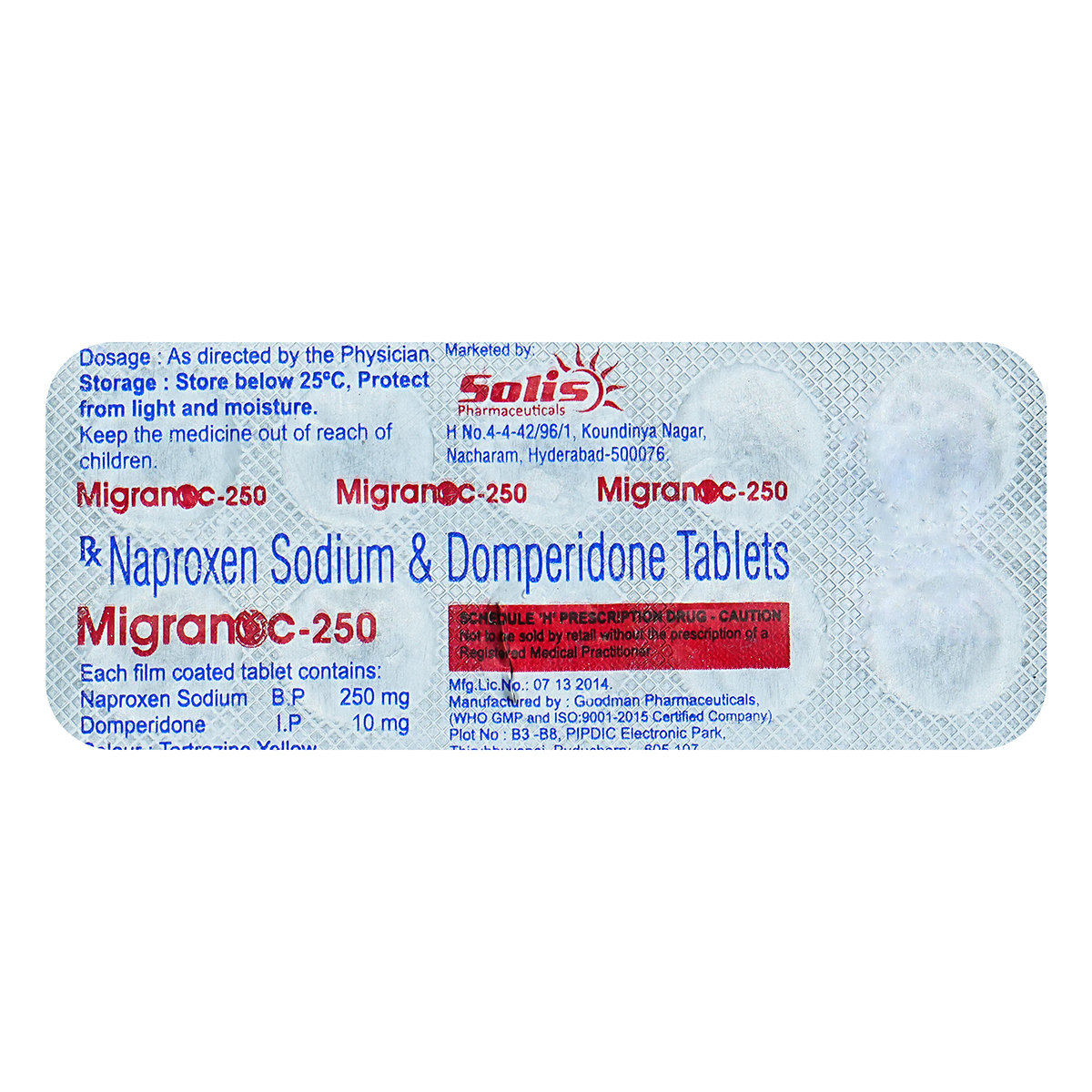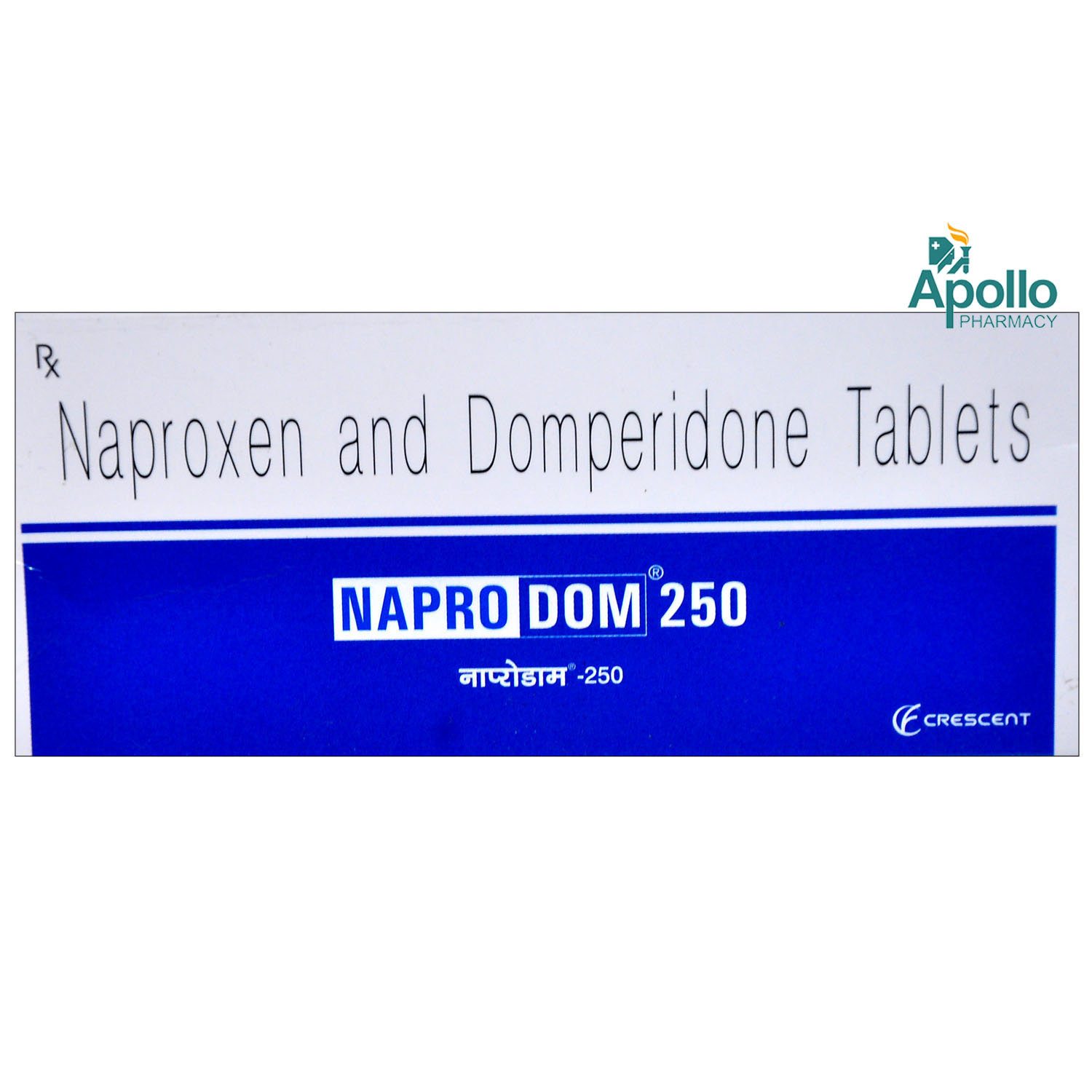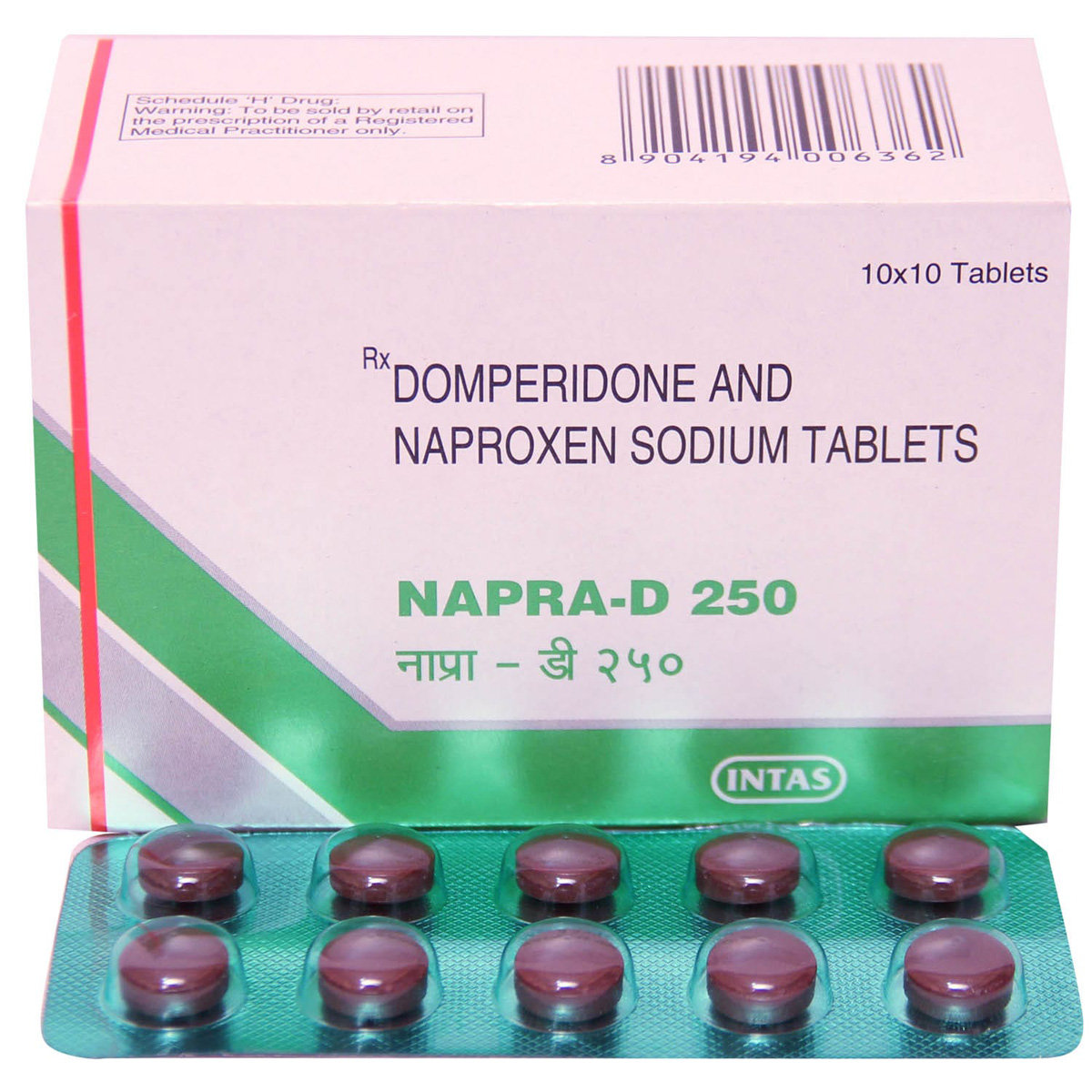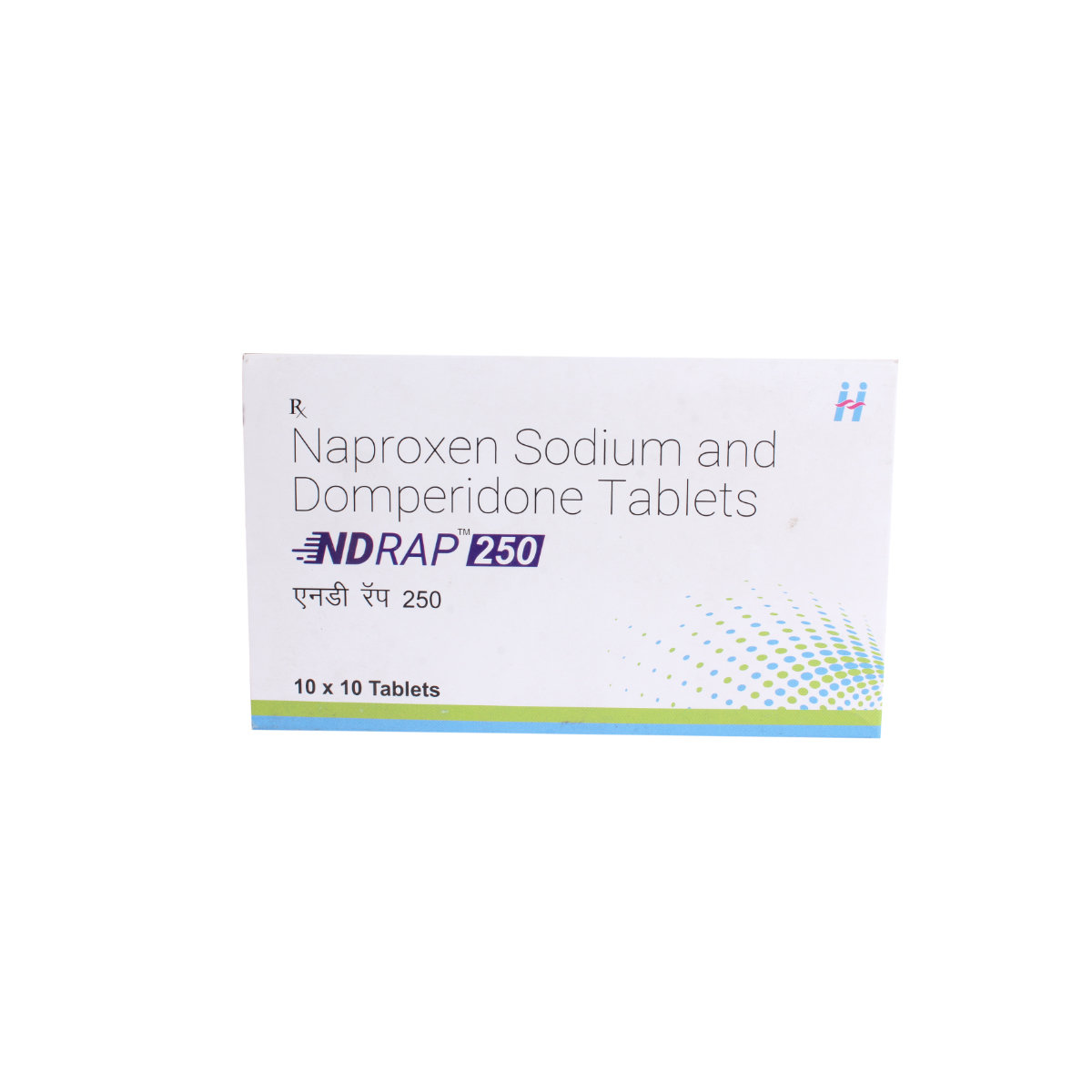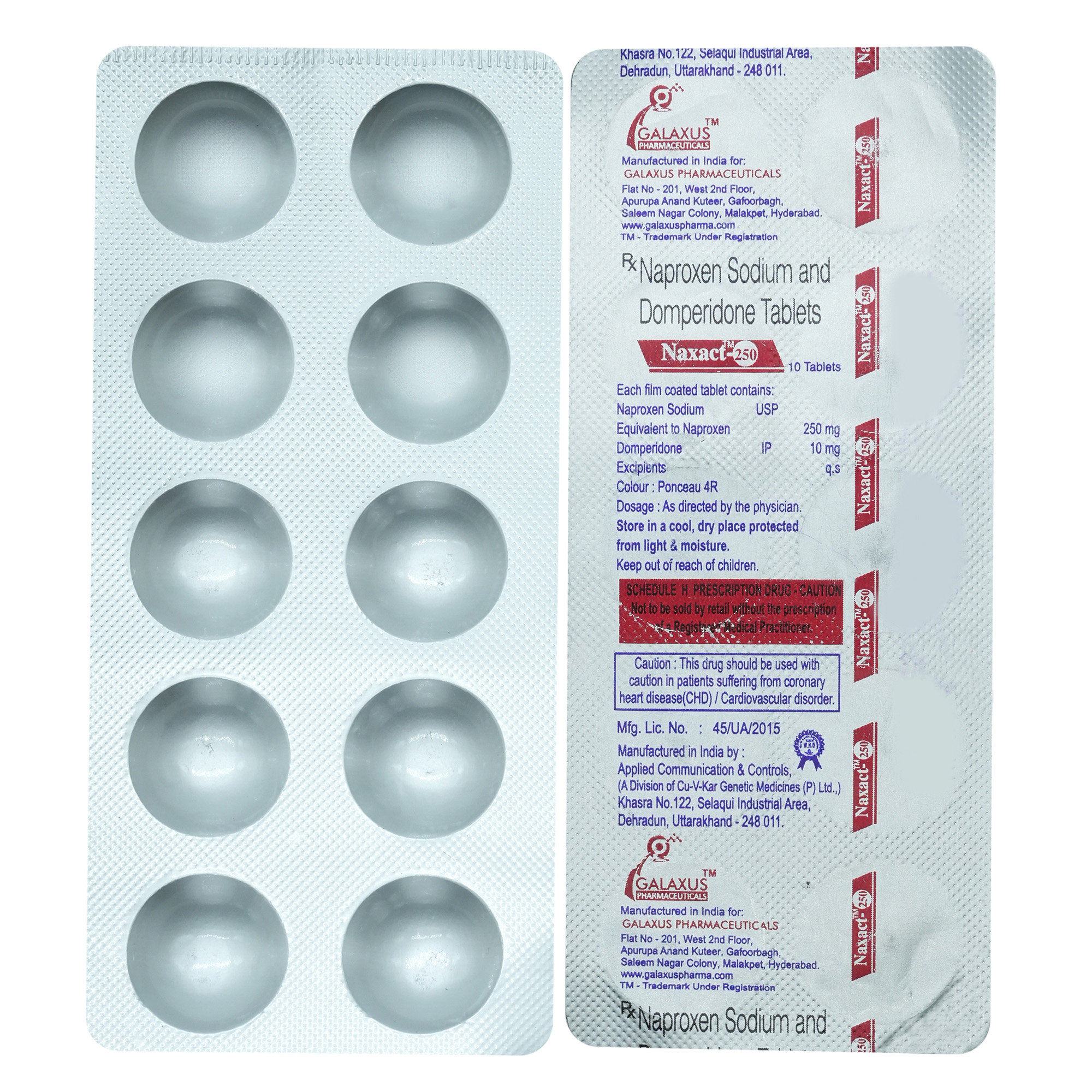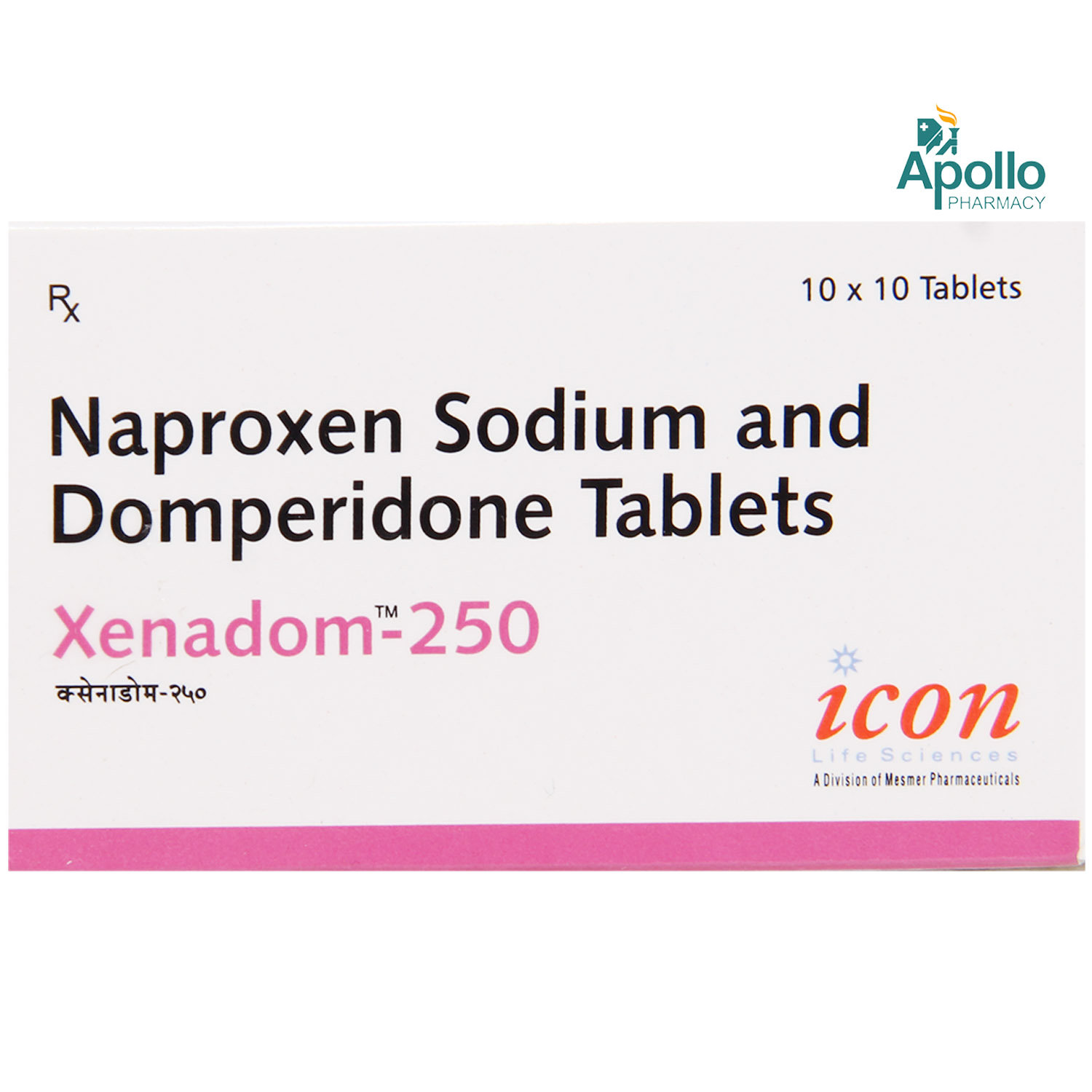- Home
- Pacinac Np Tablet
Pacinac Np Tablet Substitute
Pacinac Np Tablet Substitute
Medicine Composition:
DOMPERIDONE-10MG + NAPROXEN-250MGAll Substitutes & Brand Comparisons
RX
Minado 250 Tablet 10's
Tas Med India Pvt Ltd
₹52.5
(₹4.73 per unit)
52% CHEAPERRX
Domstal NP-250 mg Tablet 10's
Torrent Pharmaceuticals Ltd
₹66.5
(₹5.99 per unit)
39% CHEAPERRX
Napoxin D 250 mg Tablet 10's
₹75
(₹6.75 per unit)
31% CHEAPERRX
Nxhead 250 Tablet 10's
Cnx Health Care Pvt Ltd
₹67.5
(₹6.75 per unit)
31% CHEAPERRX
Quickrel 10MG+250MG Tablet 10's
Dr Reddy's Laboratories Ltd
₹77
(₹6.93 per unit)
30% CHEAPERRX
Naprosyn D 250mg Tablet 10's
RPG Life Sciences Ltd
₹77.5
(₹6.98 per unit)
29% CHEAPERRX
Naxdom 250 Tablet 15's
Sun Pharmaceutical Industries Ltd
₹117
(₹7.02 per unit)
29% CHEAPERRX
Zerograin Plus New Tablet 10's
Mankind Pharma Pvt Ltd
₹79
(₹7.11 per unit)
28% CHEAPERRX
Out of StockImdenap D 250 Tablet 10's
Lakarez Pharmaceuticals Pvt Ltd
₹79
(₹7.11 per unit)
28% CHEAPERRX
Migranoc-250 Tablet 10's
Solis Pharmaceuticals
₹81.5
(₹7.34 per unit)
25% CHEAPERRX
Naprodom 250 Tablet 10's
Crescent Therapeutics Ltd
₹82
(₹7.39 per unit)
25% CHEAPERRX
Napra D 250 Tablet 10's
Intas Pharmaceuticals Ltd
₹87.5
(₹7.88 per unit)
20% CHEAPERRX
Ndrap 250 Tablet 10's
Health N U Therapeutics Pvt Ltd
₹89
(₹8.01 per unit)
19% CHEAPERRX
Naxact-250 Tablet 10's
Galaxus Pharmaceuticals
₹89
(₹8.01 per unit)
19% CHEAPERRX
Xenadom-250 Tablet 10's
Icon Life Sciences
₹93.5
(₹8.42 per unit)
14% CHEAPER

When Should You Consider Switching from Pacinac Np Tablet ?
Patients may explore substitutes in the following scenarios:
- High monthly cost of Pacinac Np Tablet
- Non-availability in local pharmacies
- Generic recommendation by a doctor
- Side effects or better tolerability with alternatives
What to Know Before Switching
Before you switch from Pacinac Np Tablet to another medicine, here are some important points to keep in mind:
Same salt, different brands:
Most substitutes contain the same active ingredient - DOMPERIDONE-10MG + NAPROXEN-250MG, but the fillers, coating, or manufacturing quality may vary slightly.
Consult your doctor first:
Even if the salt is the same, your doctor can confirm if the substitute is right for your condition, dosage, and health history.
Watch out for allergies or reactions:
Some people may react differently to certain brands due to inactive ingredients. If you notice any side effects, inform your doctor immediately.
Price ≠ effectiveness:
A lower-priced substitute doesn't mean it's less effective. Many generic medicines work just as well as branded ones.
Check the dosage form and strength:
Always match the substitute’s strength (e.g., 5mg, 10mg) and form (tablet, capsule, syrup) with what your doctor prescribed.
Uses
Pacinac Np Tablet is used in the treatment of migraine headache, pain associated with conditions like rheumatoid arthritis, gout and dysmenorrhea (menstrual pain). The detailed uses of Pacinac Np Tablet are as follows:
- Effective Pain Relief: Pacinac Np Tablet is commonly prescribed to alleviate moderate to severe pain, including headaches, dental pain, menstrual cramps, and postoperative discomfort. It works by blocking the production of chemicals responsible for inflammation and pain.
- Powerful Anti-inflammatory Action: Pacinac Np Tablet helps reduce inflammation associated with conditions like rheumatoid arthritis, providing relief from joint pain and swelling.
- Relief for Muscle Pain: Whether caused by exercise, strains, or injuries, Pacinac Np Tablet can help alleviate muscle pain, improving comfort and mobility.
- Nausea and vomiting: It also controls nausea and vomiting associated with migraine headaches.
Medicinal Benefits
- Pacinac Np Tablet is a combination of naproxen and domperidone used to treat migraine headaches.
- Naproxen is an anti-inflammatory (reduces inflammation) and analgesic (reduces pain) agent. It inhibits the synthesis of prostaglandins, which are inflammatory mediators, thereby reducing pain and inflammation.
- Domperidone acts by enhancing gastric peristalsis (movements) to empty the stomach. It blocks the dopamine receptors present in the chemoreceptor trigger zone, which is responsible for regulating nausea and vomiting.
- Pacinac Np Tablet can also be used to reduce pain associated with rheumatoid arthritis, gout, and dysmenorrhea (menstrual pain).
- Pacinac Np Tablet also controls nausea and vomiting associated with migraine.
FAQs
The substitutes of Pacinac Np Tablet contain the same active salt(s) - DOMPERIDONE-10MG + NAPROXEN-250MG. However, they may differ in price, manufacturing quality, and inactive ingredients. Speak to your doctor to find a suitable option.
Switching to a generic substitute medicine in the place of Pacinac Np Tablet is often possible if it has the same salt, strength, and dosage form. But always check with your doctor before making any changes to your medication.
Generics versions of Pacinac Np Tablet are typically more affordable because they don’t include the original brand's research, development, and marketing costs. They contain the same active ingredient and are approved for safety and effectiveness.
Most people don’t notice any difference. However, some may react to different fillers or coatings. If you notice any unusual symptoms after switching, consult your doctor.
Make sure the new medicine has the same active salt, strength, dosage form. Always confirm the change with your doctor or pharmacist.
Substitutes of Pacinac Np Tablet meet the same safety and efficacy standards as Pacinac Np Tablet , but small differences in absorption or formulation can exist. A doctor can help you choose the right one for your needs.
Yes. Substitutes of Pacinac Np Tablet may vary in color, size, or shape due to differences in manufacturing and branding, but this does not affect how they work.
Yes, it’s generally safe to switch between multiple substitutes of Pacinac Np Tablet if they have the same salt and strength. However, always inform your doctor so they can monitor how your body responds.
Yes, many people safely use substitutes of Pacinac Np Tablet for long-term treatment. Just ensure it’s done under medical supervision.
If your symptoms stay under control or lab results remain stable, the substitute for Pacinac Np Tablet is likely working well. Regular follow-ups with your doctor are important.
Absolutely. Even with the same salt, small differences can affect how your body responds when switching from Pacinac Np Tablet to its substitute. Always consult your doctor before switching.
Buy best C.n.s Drugs products by
Intas Pharmaceuticals Ltd
Sun Pharmaceutical Industries Ltd
Torrent Pharmaceuticals Ltd
Alkem Laboratories Ltd
Alteus Biogenics Pvt Ltd
Abbott India Ltd
Cipla Ltd
Micro Labs Ltd
Lupin Ltd
Tripada Healthcare Pvt Ltd
D D Pharmaceuticals Pvt Ltd
Ipca Laboratories Ltd
Arinna Lifesciences Ltd
Icon Life Sciences
Linux Laboratories Pvt Ltd
Mankind Pharma Pvt Ltd
Cnx Health Care Pvt Ltd
East West Pharma India Pvt Ltd
La Renon Healthcare Pvt Ltd
Emcure Pharmaceuticals Ltd
Eris Life Sciences Ltd
Leeford Healthcare Ltd
Talent India Pvt Ltd
Consern Pharma Ltd
Tas Med India Pvt Ltd
Macleods Pharmaceuticals Ltd
Zydus Healthcare Ltd
Jagsam Pharma
Troikaa Pharmaceuticals Ltd
Dr Reddy's Laboratories Ltd
Matias Healthcare Pvt Ltd
Ikon Pharmaceuticals Pvt Ltd
Sigmund Promedica
Aristo Pharmaceuticals Pvt Ltd
Ardent Life Sciences Pvt Ltd
Shine Pharmaceuticals Ltd
Zydus Cadila
Theo Pharma Pvt Ltd
Wockhardt Ltd
Lifecare Neuro Products Ltd
Propel Healthcare
Crescent Formulations Pvt Ltd
Mesmer Pharmaceuticals
Matteo Health Care Pvt Ltd
Reliance Formulation Pvt Ltd
Ajanta Pharma Ltd
Morepen Laboratories Ltd
Neon Laboratories Ltd
Capital Pharma
Med Manor Organics Pvt Ltd
Akumentis Healthcare Ltd
Lyf Healthcare
Msn Laboratories Pvt Ltd
Sanix Formulation Pvt Ltd
Pulse Pharmaceuticals
Brainwave Healthcare Pvt Ltd
Hetero Healthcare Pvt Ltd
Cyrus Remedies Pvt Ltd
Sanofi India Ltd
Solvate Laboratories Pvt Ltd
Elder Pharmaceuticals Ltd
Novartis India Ltd
Psyco Remedies Ltd
Medishri Healthcare Pvt Ltd
Quince Lifesciences Pvt Ltd
Alniche Life Sciences Pvt Ltd
Crescent Therapeutics Ltd
Hbc Life Sciences Pvt Ltd
Mova Pharmaceutical Pvt Ltd
Prevego Healthcare & Research Pvt Ltd
Cadila Healthcare Ltd
Tripada Lifecare Pvt Ltd
Alembic Pharmaceuticals Ltd
Kivi Labs Ltd
Solis Pharmaceuticals
Talin Remedies Pvt Ltd
Infivis Life Care
Serotonin Pharmaceuticals Llp
Glenmark Pharmaceuticals Ltd
Aareen Healthcare Pvt Ltd
Trion Pharma India Llp
A N Pharmacia Laboratories Pvt Ltd
Cadila Pharmaceuticals Ltd
Gagnant Healthcare Pvt Ltd
Primus Remedies Pvt Ltd
Vasu Organics Pvt Ltd
Crescent Pharmaceuticals
Glarizonto Pharma Pvt Ltd
Knoll Healthcare Pvt Ltd
Lyceum Life Sciences Pvt Ltd
Wallace Pharmaceuticals Pvt Ltd
Zuventus Healthcare Ltd
Arches Pharmaceuticals
Divine Savior Pvt Ltd
Lia Life Sciences Pvt Ltd
Lincoln Pharmaceuticals Ltd
Maneesh Pharmaceuticals Ltd
USV Pvt Ltd
Corona Remedies Pvt Ltd
Dycine Pharmaceuticals

